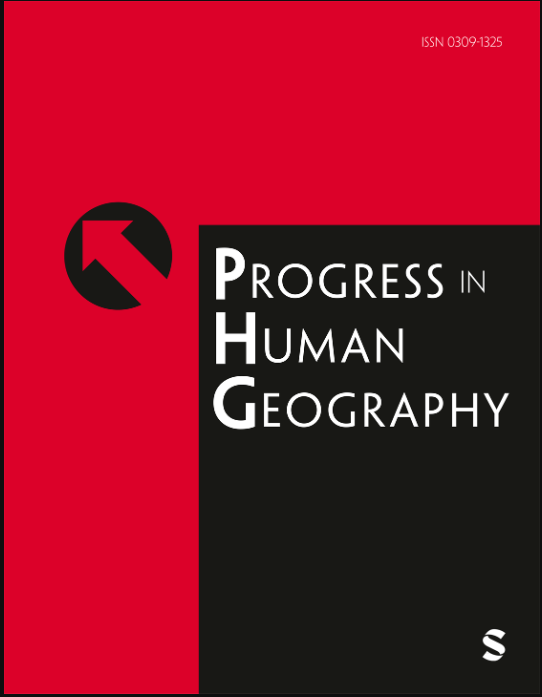Oil extraction and Indigenous women: Examining the necropolitics of the settler state in the Bakken region
IF 6.1
1区 社会学
Q1 GEOGRAPHY
引用次数: 1
Abstract
Emerging research shows that the health and well-being of Indigenous women is increasingly jeopardized in areas close to oil extraction due to heightened violence and criminal behavior. Our empirical findings reveal how the oil industry has impacted one Indigenous reservation located in the Bakken region—an area experiencing a major “boom” in shale extraction activities. We find that sexual assault and violence against Indigenous women has increased due to three settler tactics: (1) gendered economic inequalities and tribal divisiveness entrenched by structural poverty and uneven oil-derived wealth distribution, (2) industrialized “man-camps” and “risky” behaviors associated with transient oil workers, and (3) confusing jurisdictional spatialities structured by overlapping tribal authority and federal law. Employing a Native feminist reading of Mbembé's necropolitics, we argue that the above tactics coalesce to form a spatial formation where Indigenous women are made vulnerable to death through the necropower of the settler state, and tribal governments are not able to criminally prosecute non-Native individuals involved in violent crimes on tribal lands. Multi-scalar pathways forward include support for Indigenous-led activism that enhances public awareness and efforts that protect the livelihoods and futures of all Indigenous peoples. The restoration of tribal sovereignty is also supported with the understanding that, unfortunately, this form of sovereignty continues to be highly circumscribed by the settler state.石油开采与原住民妇女:检视巴肯地区移民国家的死亡政治
新出现的研究表明,由于暴力和犯罪行为加剧,在靠近石油开采的地区,土著妇女的健康和福祉日益受到危害。我们的实证研究结果揭示了石油工业是如何影响巴肯地区的一个土著保留区的,该地区正在经历页岩开采活动的主要“繁荣”。我们发现,针对土著妇女的性侵犯和暴力行为的增加是由于定居者的三种策略:(1)结构性贫困和石油衍生财富分配不均造成的性别经济不平等和部落分裂;(2)与临时石油工人相关的工业化“男人营地”和“危险”行为;(3)重叠的部落权威和联邦法律构成的混乱的司法空间。我们运用对mbemb死亡政治的本土女性主义解读,认为上述策略结合在一起形成了一种空间形态,在这种形态中,土著妇女由于移民国家的死亡权力而变得容易死亡,而部落政府无法对在部落土地上参与暴力犯罪的非土著个人进行刑事起诉。未来的多尺度途径包括支持土著人民领导的行动,提高公众意识,努力保护所有土著人民的生计和未来。部落主权的恢复也得到一项理解的支持,即不幸的是,这种形式的主权继续受到移民国家的高度限制。
本文章由计算机程序翻译,如有差异,请以英文原文为准。
求助全文
约1分钟内获得全文
求助全文
来源期刊

Progress in Human Geography
GEOGRAPHY-
CiteScore
16.40
自引率
7.00%
发文量
56
期刊介绍:
Progress in Human Geography is the peer-review journal of choice for those wanting to know about the state of the art in all areas of research in the field of human geography - philosophical, theoretical, thematic, methodological or empirical. Concerned primarily with critical reviews of current research, PiHG enables a space for debate about questions, concepts and findings of formative influence in human geography.
 求助内容:
求助内容: 应助结果提醒方式:
应助结果提醒方式:


